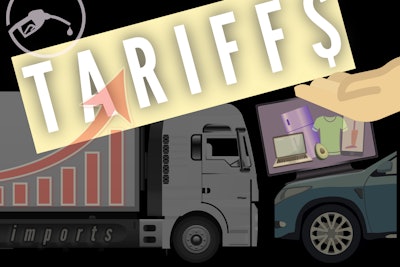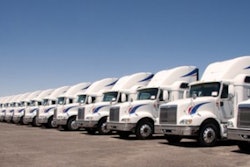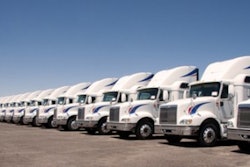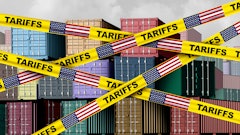
From rising commercial auto premiums and mounting litigation costs to the impact of tariffs and supply chain disruptions, the transportation industry is navigating unprecedented headwinds. Limited market entrants along with shrinking capacity and rising loss ratios are compounding the pressure for insureds, particularly in trucking, passenger transport and other high-scrutiny classes, as outlined in Amwins’ 2025 Transportation State of the Market Report.
“These conditions demand deep specialization and creative placement strategies with the ability to move quickly in a tightening marketplace,” says Zach Bowling, EVP at Amwins Brokerage. “Our role is to help retailers navigate market conditions while securing critical coverage and delivering solutions that balance cost with the protection clients need.”
Key takeaways:
- Commercial auto premiums rose 9.4%, driven by social inflation, nuclear verdicts and reinsurance costs.
- Tariffs could increase new truck costs by up to $35,000, deterring fleet upgrades while replacement parts remain expensive.
- Excess and surplus (E&S) specialty classes, including passenger transport, waste hauling, last-mile delivery, cannabis delivery and hazmat are facing heightened underwriting scrutiny, forcing many into the E&S market.
- Capacity remains scarce in New York, Georgia, California, Texas, and Illinois, and the casualty marketplace in New Jersey is still challenging due to high-frequency claims and the increased limit requirement of $1.5 million.
- Cargo theft is rising, with AI-enabled fraud schemes targeting logistics systems. Electric and autonomous vehicle adoption remains limited for long-haul freight.
- States like Florida and Georgia are implementing reforms aimed at curbing nuclear verdicts. Texas recently overturned a nearly $90 million trucking verdict, setting a new legal precedent.
- Telematics, safety cameras and electric logging devices (ELDs) are improving underwriting outcomes and helping fleets manage risk.
- Domestic markets are bundling auto physical damage and motor truck cargo coverage with auto liability at reduced rates, creating competitive pressure and a downturn in London market placements.




















